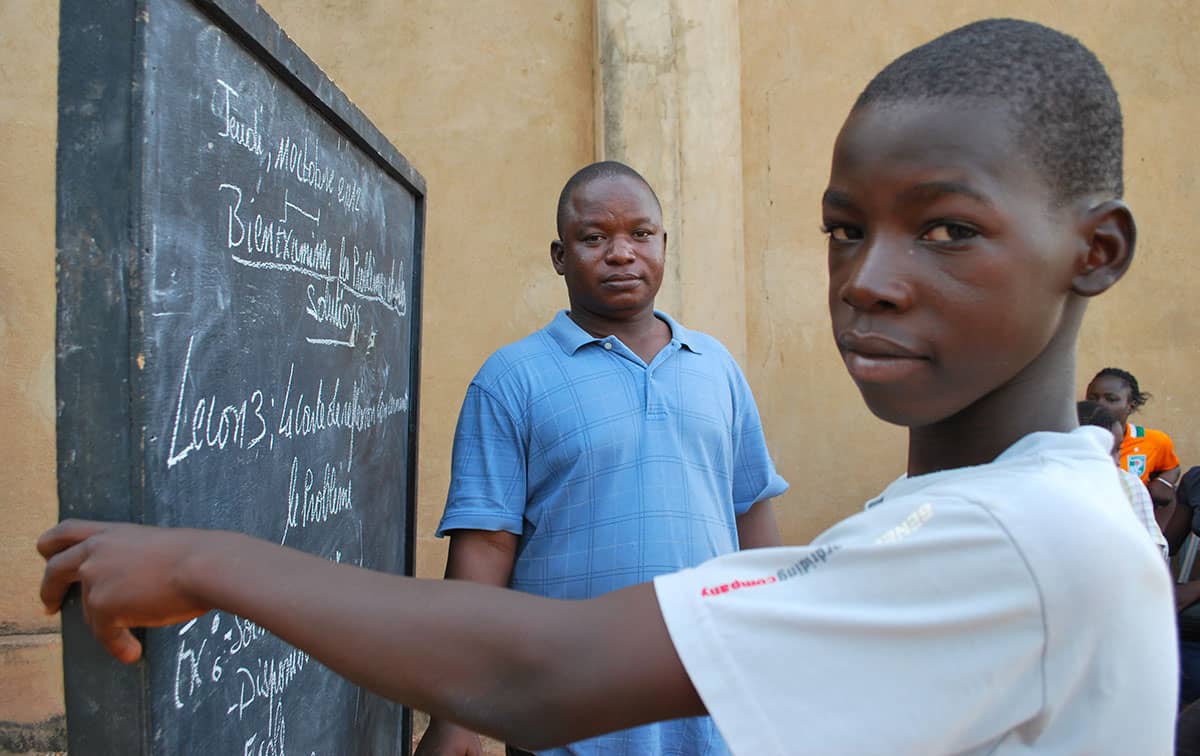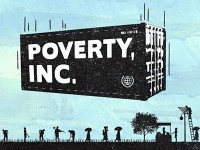Sometimes in marketing for non-profit charities (including Compassion International) you’ll see words like “hero” – “You can be a hero to a child in poverty.” It can be effective marketing. Who doesn’t want to be a hero and change the world?
But there’s a problem with this type of message: It places the donor in the role of protagonist and the child in the role of passive recipient.
This framework of donor as hero and the poor as thankful charity cases can do long-term damage. It subtly whispers to a person in poverty, “The donors are special; they have the power. You’re poor and different from them.” This can create a mindset of dependency that says, “I can’t do it myself; I’m dependent on someone else to do things for me.”
But the goal of Compassion isn’t to create life-long recipients. It’s to empower children to become adults who are equipped to escape poverty.
That’s why our church partners don’t focus on giving children things but on developing children holistically – socially, emotionally, spiritually and cognitively.
The sponsor isn’t the protagonist of the story. The children are the protagonists of their own story. You aren’t saving a child. You’re giving them the opportunities to change their circumstances themselves.

Here are five ways you can help the child you sponsor not to have a mindset of dependency but to have the mindset of empowerment:
- Ask them about school. There can be a lot of pressure to drop out of school to start working. Ask them what their favorite subjects are, and encourage them to keep working hard.
- Ask them about their interests. What unique gifts and talents has God given them that He wants them to use to serve others?
- Encourage them to be contributors. The children’s circumstances often don’t encourage them to believe they can contribute to their society. Encourage them to dream—what can they do to make a difference in their family and their community?
- Point them to God’s truths. Remind them that God created them and they are fearfully and wonderfully made. Tell them that God has a unique purpose for their lives.
- Pray for them. Pray that God would guide them as they make choices and that He would help them grow into the fulfilled, responsible adults He wants them to be.
Sponsorship isn’t about becoming a savior to a child living in poverty. It’s your opportunity to point a child to our true Savior and to allow them to become all God intended them to be.







4 Comments |Add a comment
We got two new children today from First Babtist Church in Jacksonville, NC. All together we have six sponsored children. We love them unconditionally and I pray they have the best day everyday through God
I am very new to being a sponsor and absolutely love the direction you have given in explaining the steps where we can actually help our child to become the person God has created them to be! This makes it so much more rewarding for me, the sponsor, to know that I am only a tool to be used by God to motivate and encourage one small life. I am so excited to be a part of Compassion and the young child whose life I can help.
Great article! The message of moving the sponsor out of the mindset of ‘hero’ has been needed for quite some time. However, I wonder if we should consider that the child is also not the hero of the story. Can we pass the credit again?
The only one who can release a child from poverty is God. For his work, God will use the encouragement of the sponsor… He will also use parents, caregivers and leaders from the local church partner… An entire Christian community surrounding the child… And of course the work and diligence of the child herself. Lots of moving pieces, lots of contributing players, but God alone is the hero. God alone orchestrates the healing. Separate from him we can do nothing. But when we place him at the center of transforming the life of a child, He shines as the hero.
Other nonprofits and sponsorship organizations can easily point to the child as the hero of the story. They can do this because they do not profess Christian belief. However the main difference between Compassion and a secular nonprofit is that Christ, and His transforming power, remains at the center of the sponsorship relationship. And not just transforming the life of the child, but transforming the life of the sponsor, the child caregiver or parent and the lives of countless others who play a part in watching the child transform into God’s ideal.
Just my two cents. 🙂 God is the hero of the story. Can we pass the credit again?
Absolutely, Geoff! We are in complete agreement with you that Jesus Christ is the hero :). God is transforming lives and changing communities in which we serve. This article focuses on empowering children to be all they are in Christ. This is why we emphasize that sponsors have the, “opportunity to point a child to our true Savior and to allow them to become all God intended them to be.” Thank you for giving God the glory, Amen!